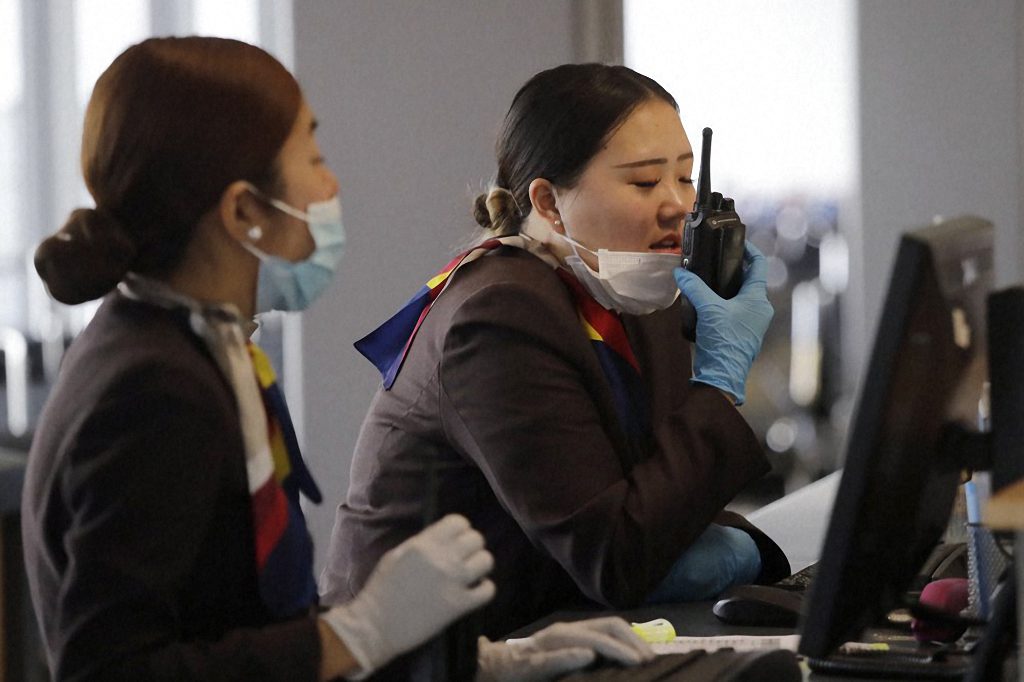Skift Take
Travel companies are having to adapt not just to a new world for their customers, but for their staff too. This might be a temporary change, but when things return to normal, will our working habits revert as well?
On March 2, an employee at Travel Republic, a large online travel agency based in the UK and owned by Dnata, tested positive for coronavirus.
The company acted swiftly, closing the office the following morning, undertaking a deep clean, and implementing flexible working arrangements for staff.
A day later the office reopened.
“Staff have been provided with guidance concerning continued monitoring of their personal health, and measures have been imposed across our whole organization to ensure hygiene best practice is followed,” a spokesperson said.
The above scenario is one that looks increasingly likely to play out in businesses across the world. The travel, tourism, and hospitality industry is reeling from the outbreak and spread of coronavirus, which is prompting many people to cancel trips and stay at home. But at the same time these companies are responsible for the wellbeing of their own employees. How are they preparing themselves for a period of what could be sustained uncertainty?
Get the Latest on Coronavirus and the Travel Industry on Skift’s Liveblog
What Companies Are Doing
The potential impact of a viral epidemic is not the same across the industry. For a hotel or an airline it’s much harder to arrange for staff to work from home compared with, say, an online travel agency. Even so many companies are trying to be much more flexible.
Accor, for example, has implemented a range of measures it hopes will not only reassure guests but staff as well.
“Our hotels are taking every measure to minimize the risk of transmission and are following official guidelines as well as advices from medical and government authorities to limit the spread of the virus,” the company said.
These measures include: setting up a global crisis unit; implementing safety procedures in line with local guidance, which in Indonesia has led to the use of temperature controls; canceling business trips to China and other affected countries; allowing telecommuting; and procuring extra hydro-alcoholic gel and masks.
Another hotel company offering certain staff the ability to work from home is Marriott.
“We are encouraging our managers to be flexible with their teams allowing them to work from home if needed and to follow the guidance and recommendations of the World Health Organization, Centers for Disease Control (CDC) and Prevention and local health authorities,” a spokesperson said.
The company does not have a travel ban in place “other than travel to and from the impacted countries as recommended by the CDC.”
Hilton said it was pointing staff toward its team member assistance fund, which offers support during global disasters.
European tourism giant TUI Group is asking staff to reduce business travel to a minimum, while low-cost airline EasyJet said it was “ working closely with authorities” and following guidelines set by the World Health Organization and the European Union Aviation Safety Agency.
“All info is being housed on a dedicated microsite on our intranet and we are issuing regular comms to our crew community,” the carrier told Skift.
Berlin-based tours and activities startup GetYourGuide has issued some pretty thorough guidance to workers. It has advised against all business travel and suggested the same for personal trips, before adding that it understands “it might be necessary in these difficult times.”
Working from home is not mandatory at its Berlin headquarters but the firm asks staff “to take laptops home every night and be prepared for changes to our WFH policy.”
Asian Impact
The virus emerged in Wuhan, China and spread throughout the rest of the country and into the region before it moved more rapidly around the world. Asia, therefore, is at a different stage to most of Europe, Africa and the Americas.
Singapore-based Pan Pacific Hotels Group said it had “cancelled non-essential travel to China across the board and heightened precautionary measures at our hotels.”
The company, however, said it was also focussing on the eventual upturn in travel demand — something others have also commented on — and as such is “making full use of this downtime to renovate our hotels and retool and reskill our people.”
Trip.com, which has its head office in Shanghai, started a work from home policy in mid-January, before Chinese New Year, with most business units operating it by the end of that month. Overall the number of people working from home ran into the thousands.
What’s interesting is because China has managed to get the outbreak under control, Trip.com is now at the stage where it can now start getting staff back into the offices and call centers.
Even with things starting to return to normal, it is not taking risks.
“Our policy is use technology and avoid big meetings,” a spokesperson said.
Masks must remain on at all times and there are daily temperature checks, plus increased cleaning.
Skift editors Sean O’Neill and Xinyi Pholsena-Liang contributed to this report.
Have a confidential tip for Skift? Get in touch
Tags: accor, airlines, coronavirus, hilton, low-cost carriers, marriott
Photo credit: A gate agent pulls down her mask to speak on a radio at Seattle-Tacoma International Airport Tuesday, March 3, 2020, in SeaTac, Wash. Elaine Thompson / Associated Press
